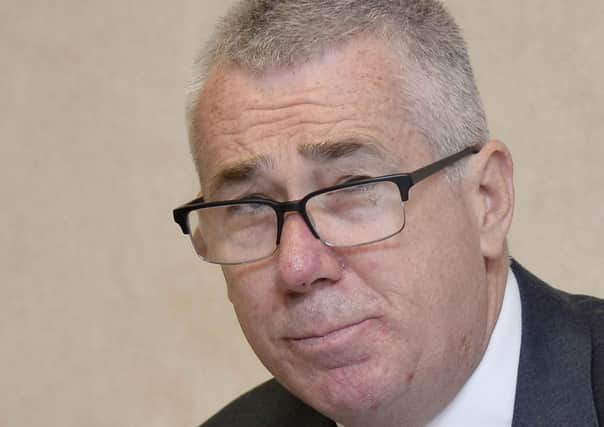Op Kenova a ‘Rolls Royce’ of a Troubles probe too costly to replicate


Operation Kenova is currently investigating whether the state – through it connection to the well-placed agent within the ranks of the Provos – was involved in the commission of criminal offences including murder and unlawful imprisonment.
During Wednesday’s evidence session of the NI Affairs Committee (NIAC) at Westminster, SDLP MP Claire Hanna asked former RUC assistant chief constable Raymond White if he believed Op Kenova was proving to be a worthwhile exercise.
Advertisement
Hide AdAdvertisement
Hide AdThe NIAC evidence session had been called to discuss the government’s latest proposals on dealing with the past.
Mr White said: “You can afford something like Kenova for very special investigations, but when you try to roll that out, to embrace the 1,100 case we believe the [PSNI] Legacy Investigation Branch has and the 300 cases that the police ombudsman has, can you afford what Kenova actually is?
“Kenova’s cost is currently running at around £6 million a year. He has 72 officers. Some are retired officers who have been re-employed while others have been seconded from police forces in England and Wales, and that is just to address those cases that Kenova has under its umbrella.
“If you take that and try to replicate it across the board, where to you find the people to populate that and how do you fund it, given the costs that the government will face post Covid-19?.
“Kenova is the Rolls Royce of investigations.”
Advertisement
Hide AdAdvertisement
Hide AdMr White, representing the NI Retired Police Officers’ Association (NIRPOA), added: “The courts have recognised that you can’t just re-investigate a matter simply because a new assertion has been made.
“There has to be an element of credibility or probity behind what is being produced as new evidence, and some adjudication has to be made on whether a case warrants a new investigation”.
Also giving evidence on behalf of the NIRPOA, former ACC Chris Albiston said that, on occasions, “those who are demanding fresh investigations simply don’t like the outcome of the first investigation”.
Mr Albison added that the legacy institutions should not be manipulated for “political point scoring purposes,” and added: “There must be some substantive reason for identifying something that was wrong in the previous one, or where there is new evidence.”
A message from the Editor:
Advertisement
Hide AdAdvertisement
Hide AdThank you for reading this story on our website. While I have your attention, I also have an important request to make of you.
With the coronavirus lockdown having a major impact on many of our advertisers - and consequently the revenue we receive - we are more reliant than ever on you taking out a digital subscription.
Subscribe to newsletter.co.uk and enjoy unlimited access to the best Northern Ireland and UK news and information online and on our app. With a digital subscription, you can read more than 5 articles, see fewer ads, enjoy faster load times, and get access to exclusive newsletters and content. Visit https://www.newsletter.co.uk/subscriptions now to sign up.
Our journalism costs money and we rely on advertising, print and digital revenues to help to support them. By supporting us, we are able to support you in providing trusted, fact-checked content for this website.
Alistair Bushe